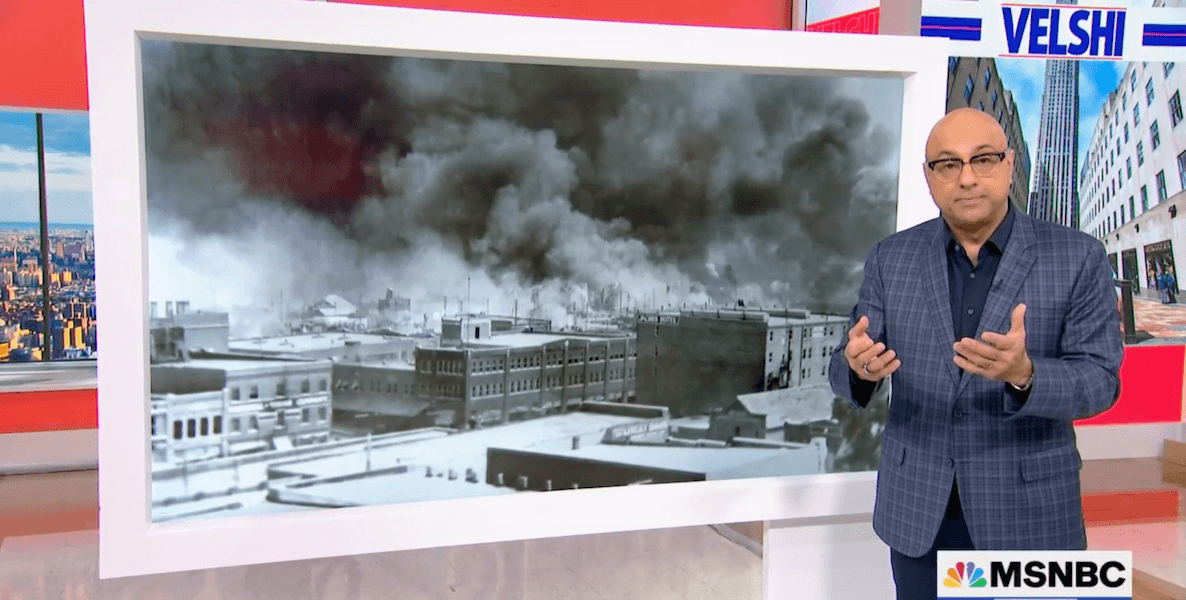Ali Velshi retraces the Tulsa Race Massacre to 1906, when African American entrepreneur O.W. Gurley purchased 40 acres of land in Tulsa, Oklahoma and founded Greenwood, a thriving, wholly independent and — wholly Black — city-within-a-city. Greenwood, says Velshi, became a magnet for formerly enslaved people, who bought property and established banks, a school system, a public transit system — and all manner of Black-owned businesses there. The 35-block neighborhood was so affluent, so thriving, it became known as “Black Wall Street.”
About 12 years after its founding, Greenwood vanished. On June 1, 1921, a White mob incited by a White woman’s accusation that she’d been sexually assaulted by a Black man from Greenwood set fire to every single building there and killed an estimated 300 residents.
“What took years to build burned to the ground in one day,” says Velshi. And almost as fast as White rioters razed Greenwood, its truth became erased from historic record. The local paper went as far as to destroy its archive of reporting on the slaughter.
That tradition of erasing hard truths about Black history continues today, says Velshi. Although in 2019, Oklahoma and other states made strides by including the Tulsa Race Massacre in their history book, in 2021, Oklahoma Governor Kevin Stitt quashed the truth by outlawing Critical Race Theory (CRT). Even though CRT is a college-level theory, Velshi says, it “has become the catchall for the right to suppress conversation about racism in America everywhere, including schools,” says Velshi.
The danger of erasing difficult pieces of Black history is clear. Almost one year to the day of the centennial of the Tulsa Race Massacre, South Carolina Rep. Jim Clyburn, a former history teacher, quoted George Santayana. “‘Those who cannot remember the past are condemned to repeat it.'”
LISTEN: ALI VELSHI ON ERASING TULSA RACE MASSACRE
WATCH: ALI ON THE TULSA RACE MASSACRE
![]() MORE FROM MSNBC’S ALI VELSHI
MORE FROM MSNBC’S ALI VELSHI



